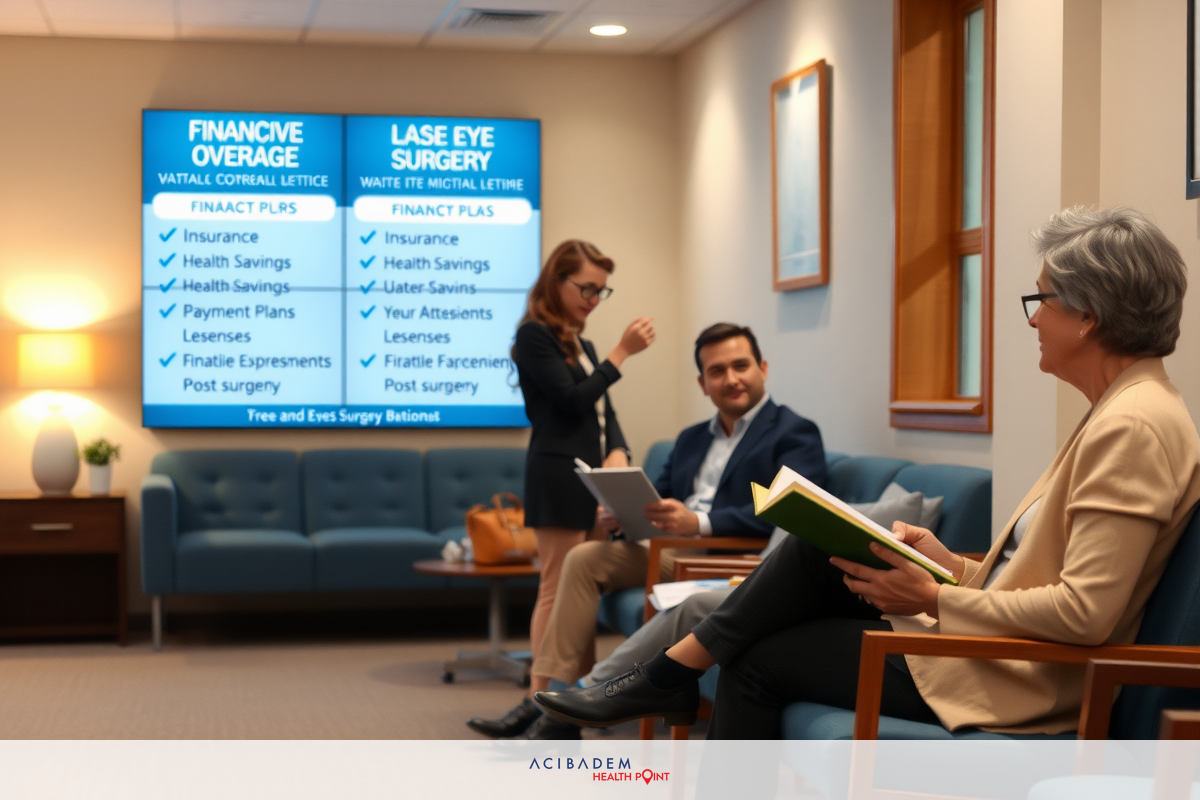How Much Does Laser Eye Surgery Cost
How Much Does Laser Eye Surgery Cost Considering laser eye surgery involves a measured understanding of various connotations. The procedure’s cost, influenced by a multitude of factors, needs to be comprehended holistically. Be it the type of procedure or surgeon’s experience – each aspect has its role in determining the final figure on your bill.
Affordable options for this medical expedient may seem elusive at first glance. Researching different clinics and looking into financing solutions can help unearth pocket-friendly routes to regain vision quality. Equally important is knowing how recovery post-surgery and long-term savings correlate, enriching our grasp on costs involved further.
An informed decision comes from comprehensive awareness about every dimension associated with Laser Eye Surgery Costs.
Factors Affecting the Cost
Discussing the cost of laser eye surgery is a multifaceted issue, as it’s influenced by various critical factors. One of the most prominent determinants is the type of procedure, which can significantly impact the financial investment required for vision correction. In general, conventional procedures tend to be more affordable, with an average price range of $1,000 to $4,000 per eye, whereas custom procedures lean towards the higher end of the cost spectrum.
Location inevitably finds itself as another substantial contributor to varying costs across different geographical landscapes. Clinics in bustling city centres may quote steeper prices than those nestled in less urban areas, primarily influenced by overhead costs navigating such locations incur. Where you choose to go under the scalpel can hence play a part in swelling or shrinking your bill substantially.
The surgeon’s experience isn’t just critical for ensuring successful outcomes; it also influences how much one needs to allocate for their treatment plan financially. Veteran surgeons bring with them years of proficiency and insights born out of countless surgeries performed over long careers – these are not attributes easily quantifiable monetarily but do carry their weight on cost scales nonetheless.
Finding Affordable Options
The quest for affordable options in the vast landscape of laser eye surgery can seem daunting initially. Factors like location, surgeons’ fees, and procedure types build an intricate labyrinth of varying costs that requires careful navigation. However, several strategies could potentially lead to cost-effective avenues.
- Research various clinics: Different establishments offer different services at varied costs. Diving deep into these variances can help identify institutions offering quality care without stretching your budget thin.
- Financing Considerations: Certain medical institutions provide financing options for their patients—enabling them to break down hefty treatment bills into manageable monthly payments.
- Insurance Company Consultation: Your insurance company should ideally be a valuable ally in your journey towards affordability—take time to understand the extent of coverages they might offer for procedures like laser eye surgery.
- Consider Out-of-Town Clinics: It’s worth considering clinics outside city limits—they may often present affordable pricing due to lower operating expenses compared with their big-city counterparts.
- Price vs Quality balance : While hunting down cheap alternatives,it’s crucial to ensure the quality isn’t compromised—as it directly impacts surgical outcomes.
Keeping these strategic steps in mind will assist you on a path towards making sure financial constraints don’t

hinder your goal of better vision through laser eye surgery.
Recovery and Long-Term Savings
A vantage point often overlooked while deliberating on the financial implications of laser eye surgery is the prospect of long-term savings. However, taking a step back to evaluate what this medical intervention promises for your future can uncover an unexpected silver lining. The promise of perfect or near-perfect vision reduces, if not eliminates, expenses like glasses, contact lenses, solutions – essentials we see as commonplace yet are persistent drains on our wallets.
Another crucial aspect that merits discussion here lies in understanding and implementing post-surgery care protocols effectively. How well you adhere to them directly impacts recovery timelines—a swifter healing course meaning lesser days off work or planned activities. Scheduled follow-ups with your surgeon ensure everything is proceeding according to plan—delaying these invites unnecessary complications which also brings along extra costs.
Understanding the process’s nitty-gritty allows one to engage better with its various dimensions—from pre procedure evaluations through recovery phases. Seasoned surgeons often help patients chalk out expected trajectories based on their specific cases—an investment worth making for ensuring smoother paths ahead.
It’s evident that effective cost analysis requires evaluating potential long-term savings and carefully considering factors impacting smooth recovery after laser eye surgery—it undoubtedly leads towards a more rounded perspective about this life-changing procedure’s financial dynamics!
How Much Does Laser Eye Surgery Cost: Frequently Asked Questions
How much does the typical laser eye surgery cost?
The cost varies significantly, affected by factors like geographical location, surgeon's experience and selected procedure type. Prices can range from a few hundred to several thousand dollars per eye.
Does health insurance typically cover laser eye surgery?
Coverage for laser eye surgery differs substantially among different insurance companies. It’s crucial to consult with your specific provider for precise information about what they cover.
Are there financing options available for this procedure?
Yes, many clinics offer financing plans that allow patients to pay the treatment costs over an extended period—making the financial burden more manageable.
What post-surgery expenses should I expect beyond quoted rates?
This varies based on individual cases but generally includes follow-up visits or additional care required during recovery phase—discussing these possibilities with your surgeon beforehand gives clarity about potential extra costs involved.
These answers are intended only for informational purposes and do not constitute medical advice—please always consult with a healthcare professional before making decisions regarding any medical procedures.








